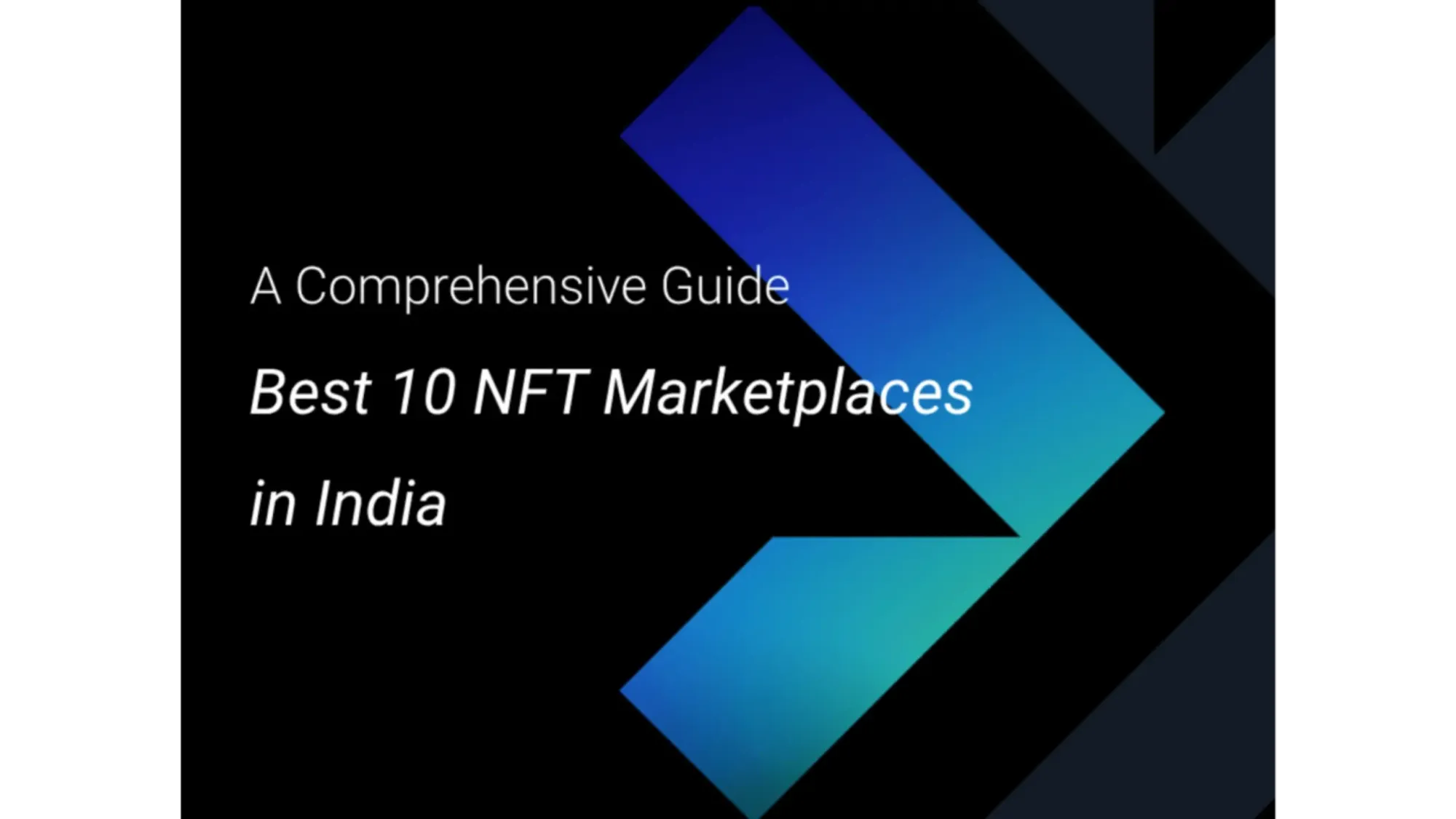Introduction
Non-fungible tokens (NFTs) are more than just digital collectibles—they're a groundbreaking asset class poised to disrupt the financial services industry. Enter NFT banking, where NFTs are leveraged as collateral for loans and other financial instruments, unlocking a new realm of possibilities in the banking sector. This emerging trend is rapidly gaining traction, captivating the attention of investors, creators, and financial institutions alike.
In this article, we’ll unravel the intricacies of NFT banking, spotlight how it stacks up against traditional banking, and highlight the transformative benefits it offers to diverse stakeholders—from digital asset enthusiasts to real estate moguls.
Whether you’re an experienced investor or just dipping your toes into the world of NFTs, understanding NFT banking could be your gateway to the next big opportunity in finance.
What Is NFT in Banking?
NFT Banking is a new way to use digital assets called non-fungible tokens (NFTs) as collateral for loans. NFTs are like special digital items that represent ownership of something, like a piece of art, collectibles or a virtual property. With NFT banking, you can borrow money without having to sell your NFT. This is a helpful way to get cash without giving up your digital asset.
How Does NFT Banking Work?
1. Asset Tokenization
NFTs enable tokenizing both tangible and intangible assets by creating a digital version on the blockchain. For example, a rare painting can be digitally represented as an NFT. Tokenizing an asset involves creating a smart contract that defines ownership and usage terms.
2. Collateralized Lending
Banks can utilize NFTs as collateral for loans, allowing clients to borrow funds against their digital assets. NFT-backed loan platforms use smart contracts to define loan terms, holding the NFT as security until the loan is repaid. If the loan isn't repaid, the platform keeps the NFT, similar to using a car as collateral for a traditional loan.
NFT Banking vs Traditional Banking
NFT banking presents a new system in financial services, contrasting sharply with traditional banking methods.
| Feature | NFT Banking | Traditional Banking |
|---|---|---|
| Security | Utilizes cryptography, decentralized ledgers, smart contracts | Relies on centralized databases, follows regulations |
| Accessibility | Operates on decentralized networks, allows NFTs as collateral | Limited by location, regulatory frameworks, requires lengthy approvals |
| Efficiency | Enables instant transactions, reduces costs | Requires days for transactions, imposes higher fees |
Security
- NFT banking uses blockchain, a technology like a digital ledger which makes it very hard for hackers to change or tamper with information. It also utilizes smart contracts which helps prevent mistakes and makes transactions more secure.
- Traditional banks store information in one place. This can make them easier to hack. Although banks have their own ways to stay safe, they might not be as strong as blockchain and can still be attacked by hackers.

Accessibility
- NFT banking is available almost anywhere with an internet connection. This is great for people who live in places without many banks. People can also use NFTs to get loans without selling them.
- Traditional banks might be difficult to access, especially if one lives in a remote area. It can also take a long time to get a loan or open an account in a traditional bank.
Efficiency
- NFT banking allows people to get loans and transfer money almost instantly. Since it also uses technology, it saves money on things like paperwork. This means borrowers might pay less in fees.
- In traditional banking, it can take several days for money to move between accounts, especially if one is dealing with a different country. Banks also often charge fees for things like transactions, keeping accounts, and getting loans. These fees can add up.

What's the Benefits of NFT Banking?
NFT banking offers several advantages over traditional financial assets:
1. Access to Financing
NFT banking allows users to leverage their digital assets to secure loans without selling them. This enables NFT owners to access liquidity for investments or projects while retaining ownership of their prized possessions.
2 .Faster Transactions
NFT banking often operates on decentralized platforms that eliminate intermediaries, leading to quicker loan processing times. The use of smart contracts automates many aspects of the lending process.
3. Enhanced Liquidity
NFTs can be transferred easily and directly between parties without the need for intermediaries, thanks to blockchain technology. Traditional financial assets often require intermediaries, such as banks or brokers, to facilitate transactions, which can slow down the process and incur additional costs.
4. Programmability and Transparency
NFTs are governed by smart contracts, which ensure that loan terms are executed automatically and transparently. This reduces the risk of human error and fraud. Traditional financial assets rely on legal contracts and regulatory frameworks, which can be slower to execute and may involve more complex legal processes.
5. NFT Insurance and Security
Some NFT banking platforms offer insurance options to protect users' digital assets against theft or loss, providing an extra layer of security.

Who Should Consider NFT Banking?
NFT banking offers unique advantages that can significantly benefit specific types of consumers and businesses.
Digital Asset Holders
- Who They Are: Individuals or collectors who own NFTs, such as digital art, collectibles, or virtual real estate.
- Benefits: NFT banking allows them to leverage their digital assets for loans without selling them. This access to liquidity can help them fund other investments or projects while retaining ownership of their NFTs, enhancing financial flexibility and investment opportunities.

Small Businesses and Creators
- Who They Are: Artists, musicians, and small businesses that create or sell digital content as NFTs.
- Benefits: These users can utilize NFT banking to secure funding against their digital creations. By using their NFTs as collateral, they can access capital for production, marketing, or expansion without sacrificing ownership of their work. Additionally, NFT banking can facilitate new revenue streams through NFT sales and loyalty programs tied to their digital assets.
Real Estate Investors
- Who They Are: Investors interested in real estate, particularly in tokenized properties or virtual real estate.
- Benefits: NFT banking can facilitate the buying, selling, and financing of real estate assets through tokenization. This process can simplify transactions, reduce costs, and provide a secure method for transferring ownership of real estate assets.

Investors in Emerging Markets
- Who They Are: Investors looking to diversify their portfolios with alternative assets, including NFTs.
- Benefits: NFT banking provides a platform for fractional ownership of high-value NFTs, making it easier for investors to enter the market without needing significant capital. This accessibility can democratize investment opportunities, allowing more people to participate in the growing NFT space.
If you're interested in knowing how to invest in NFTs, check out our article: How to Invest in NFTs: A Beginner's Guide for Creators & Collectors.
How to Apply for an NFT Loan?
Prerequisites:
- NFT Ownership: You must own an NFT that meets the lender's requirements.
- Blockchain Compatibility: Your NFT should be on a blockchain supported by the lending platform (e.g., Ethereum, Solana).
- NFT Value: The NFT's value must be sufficient to secure the loan amount.
- Willingness to Lock: You'll need to be prepared to lock your NFT in a smart contract.
- Repayment Ability: Demonstrate your financial capacity to repay the loan on time.

Step-by-Step Process:
- Choose a Lending Platform: Research and compare different NFT lending platforms to find one that best suits your needs. Consider factors like interest rates, reputation, and supported blockchains.
- Create an Account: Register for an account on the chosen platform, providing necessary information.
- List Your NFT: Upload your NFT to the platform's marketplace and set a price.
- Apply for a Loan: Indicate the loan amount, duration, and interest rate you desire.
- Loan Evaluation: The platform will assess your NFT's value and determine the loan-to-value (LTV) ratio. A higher LTV means you can borrow more, but it also increases the risk for the lender.
- Loan Agreement: If approved, you'll sign a smart contract outlining the loan terms. Make sure you understand the contract's details.
- Loan Disbursement: The lender will send the loan funds to your digital wallet.
- Repayment: Make timely repayments according to the agreed-upon schedule.

By following these steps and considering the key factors, you can increase your chances of successfully applying for an NFT loan.
Current State of NFT Banking
NFT banking remains in its nascent stages, and governments worldwide are actively engaged in establishing regulatory frameworks to govern this burgeoning territory. The primary challenges lie in the following aspects:
Anti-Money Laundering (AML) Regulations:
Recent legislation in the United States has included digital assets like NFTs under AML regulations, highlighting the growing focus on compliance. However, specific guidelines tailored to NFTs are still under development.

Classification Challenges:
NFTs face classification issues, as their multifaceted nature raises questions about whether they fall under the purview of commodities, securities, or intellectual property regulations. Depending on the classification, regulatory bodies such as the Commodity Futures Trading Commission (CFTC) might have oversight.
Global Regulatory Approaches:
The regulatory landscape varies geographically. In Europe, the Markets in Crypto-assets Regulation (MiCA) aims to establish a framework for crypto assets, including NFTs. This framework seeks a balance between fostering innovation, ensuring consumer protection, and achieving transparency.
Additionally, some U.S. states are enacting laws specific to virtual currencies, encompassing NFTs. For instance, New York requires virtual currency companies to obtain licenses, signifying increased regulatory scrutiny.

Consumer Protection:
NFTs must adhere to local consumer laws, ensuring transparency and consumer rights. This includes providing clear information and complying with local regulations for transactions.
The Future of NFT Banking
The future of NFT banking holds immense promise, driven by several key trends and innovations.
Asset Fractionalization
NFTs facilitate fractional ownership of high-value assets like real estate or fine art, democratizing investment opportunities for a broader audience. This trend is expected to fuel demand for NFT banking services as individuals seek financial solutions for these newly accessible asset classes.
Integration with Decentralized Finance (DeFi)
NFT banking is merging with DeFi, enabling users to leverage NFTs for loans and other financial services. This integration streamlines access to financial products and fosters a more flexible financial system.
Conclusion
NFT banking is more than just a trend—it's a powerful tool reshaping the future of finance. By offering increased liquidity, faster transactions, and greater transparency, NFT banking provides a compelling alternative to traditional financial systems.
As the sector continues to evolve, those who embrace NFT banking early may find themselves at the forefront of this financial revolution. Whether you're looking to access new financing options, enhance the liquidity of your assets, or simply stay ahead of the curve, the possibilities with NFT banking are endless!




